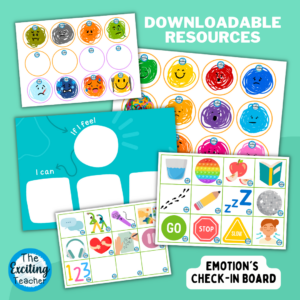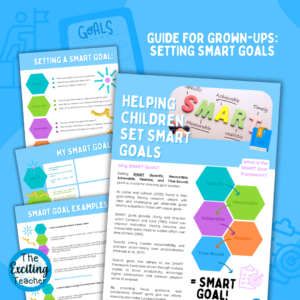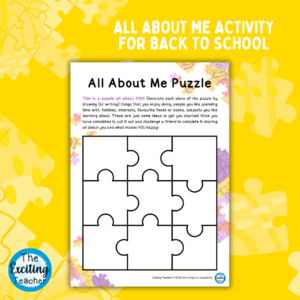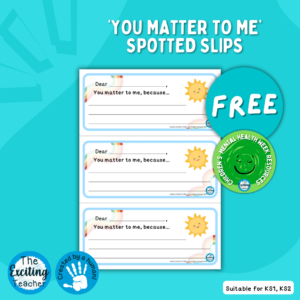Let's Journal: 'My Voice Matters' - Turning Thoughts into Sentences Prompt Sheet

Journalling provides a host of benefits for developing minds. The process of journalling allows children to practise expressing thoughts and feelings in writing while also supporting emotional regulation and self-awareness.
By journalling experiences, worries, wishes or daily events in a personal journal, young children can reflect on emotions, gain perspective and build coping strategies.
The very act of writing or drawing about feelings on paper through journalling alone can even help release negative emotions and anxiety. Structured thought-organisation achieved through consistent journalling strengthens fine-motor skills too.
With guidance, adopting journalling presents children with a valuable outlet for developing vital communication abilities alongside managing behaviours and advancing mental health.
How could this resource be used?
- To support understanding feelings and emotions.
- To increase Coping Strategies for children.
- To support self-regulation.
- To promote mindfulness and being present.
Relevant Curriculum Links:
England PSHE – Which statutory PSHE curriculum* objectives does this resource fall into? *in line with the PSHE Association 2021 Statutory Guidance.
KS1:
- H17. about things that help people feel good (e.g. playing outside, doing things they enjoy, spending time with family, getting enough sleep).
- H18. different things they can do to manage big feelings, to help calm themselves down and/or change their mood when they don’t feel good.
KS2:
- H16. about strategies and behaviours that support mental health — including how good quality sleep, physical exercise/time outdoors, being involved in community groups, doing things for others, clubs, and activities, hobbies and spending time with family and friends can support mental health and wellbeing.
- H18. about everyday things that affect feelings and the importance of expressing feelings.
- H20. strategies to respond to feelings, including intense or conflicting feelings; how to manage and respond to feelings appropriately and proportionately in different situations.
Scottish Health and Wellbeing Curriculum Outcome(s):
- Mental and Emotional Wellbeing:
- I know that we all experience a variety of thoughts and emotions that affect how we feel and behave and I am learning ways of managing them. HWB 0-02a / HWB 1-02a / HWB 2-02a / HWB 3-02a / HWB 4-02a.
- I understand the importance of mental wellbeing and that this can be fostered and strengthened through personal coping skills and positive relationships. I know that it is not always possible to enjoy good mental health and that if this happens there is support available. HWB 0-06a / HWB 1-06a / HWB 2-06a / HWB 3-06a / HWB 4-06a.
More amazing resources you might like:
- All
- Emotional Literacy
- Emotions and Feelings
- Goal Setting
- Guides for Parents, Teachers and Professionals
- Mental Health
- New Year
- Ourselves, Growing and Changing
- Self-Care and Wellbeing
- Self-Esteem
- The Scribbles Crew
- Zones of Regulation

My ‘Jar of Self-Care’ Activities

Regulation Zones Feelings and Tools Chart

Santa (Father Christmas) Emotions & Feeling Flashcards

Zones of Regulation: “Right now I am in the… zone!”

‘If I feel… I Can…’ Emotions Check-In Board

Feelings Trigger Paperchain: ‘When I Feel I Can…’ Activity

‘Helping Children Set SMART Goals’: Guide for Grown-Ups

‘The Overflowing Bucket’: Understanding the Stress Response and Feeling Overwhelmed

All About Me: Puzzle D.I.Y Craft Activity

FREE: ‘You matter to me, because…’ Gratitude and My Voice Matters Slips (Children’s Mental Health Week 2024 Resources)
Share this resource:
Request a Resource
Want to request or suggest a resource? Pop us a message below and we will see what we can do. We are not able to respond directly to all requests but be rest assured, we are reading them and constantly updating the resource bank accordingly to all your fabulous ideas!
